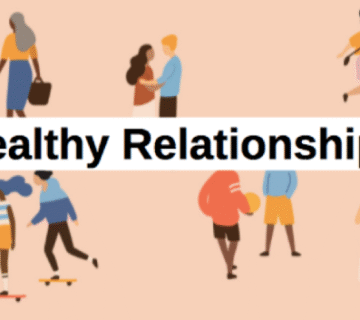Argument and conflict are natural in relationships, but constant fighting can erode love and connection. Learning how to stop arguing in a relationship is essential for building long-lasting happiness and understanding between partners. Rather than viewing disagreement as a battle to be won, couples need to transform arguments into opportunities for growth and deeper communication.
This article offers practical, proven tips to stop arguing, improve communication, and create a stronger, more loving relationship.
Recognize Why Arguments Happen
Arguments often arise not just from the surface issue but from underlying emotions like feeling unheard, disrespected, or insecure. According to relationship experts, no one argues just for the sake of arguing. Often, each partner wants to feel understood or have a need met but expresses this poorly through conflict.
Understanding this can help couples shift from blaming each other to solving the real problems together.
Tip 1: Create Calm Before Addressing Issues
When emotions run high, arguments escalate fast. One of the wisest tips on how to stop arguing in a relationship is to pause when tempers flare. Taking a short break allows both partners to calm down, reflect, and avoid saying things in the heat of the moment they will regret.
Agreeing on a signal or phrase to call a “time-out” can help couples in the moment. After calming, set a time to return and discuss the issue calmly so it doesn’t get swept under the rug.
Tip 2: Practice Listening with Empathy
In many arguments, both sides try to “win” by convincing the other they are right. Instead of listening, each partner prepares a rebuttal or defends themselves. Changing this dynamic by actively listening without interrupting can deescalate conflict quickly.
Ask questions to understand your partner’s feelings and perspective. This shows empathy and openness, paving the way for mutual understanding.
Tip 3: Use “I” Statements Instead of Blame
Blaming language like “You always” or “You never” makes others defensive and escalates conflict. Instead, use “I feel” statements to express your emotions without accusing.
For example, say “I feel hurt when plans change last minute because I value our time together” rather than “You never stick to plans.” This invites dialogue instead of defensiveness.
Tip 4: Avoid Yelling and Hostile Tone
Raising voices makes it almost impossible for productive communication. When arguments reach yelling, listening stops and hurtful words fly. Commit to speaking calmly even if upset. If yelling occurs, take a break and come back with cooler heads.
Tip 5: Focus on One Issue at a Time
Couples often spiral into fights where they bring up past grievances, multiple complaints, or attack character instead of addressing a single issue. Stay focused on one topic to avoid veering off course and overwhelming your partner.
Tip 6: Be Willing to Apologize and Forgive
Humility goes a long way in stopping arguments. If you realize you were wrong or hurt your partner, apologize sincerely. Forgiveness from both sides breaks the cycle of anger and blame and rebuilds trust.
Tip 7: Find Common Ground and Compromise
Both partners don’t need to be “right.” Instead, work toward a compromise or find common goals like wanting peace, happiness, or respect. Even small concessions can move a conflict toward resolution.
Tip 8: Use Humor to Defuse Tension
When appropriate, light humor can ease tension and remind couples they are on the same team, not enemies. A well-timed laugh after cooling down can create connection.
Tip 9: Build Healthy Communication Habits
Good communication outside of disagreements prevents fights. Regularly check in with your partner, express appreciation, and talk openly about feelings and concerns. This builds emotional safety to navigate conflicts better.
Tip 10: Seek Professional Help if Needed
Sometimes patterns of arguing become entrenched or escalate to emotional abuse. Seeking relationship counseling or therapy is a healthy step that provides tools and support to improve communication and repair damage.
Read More: The 10 Secrets of Happy, Healthy Relationships: Expert Insights for Lasting Love
Summary
Arguments in relationships are inevitable but learning how to stop arguing is about changing patterns, staying calm, communicating openly, and focusing on understanding over winning. Couples who practice these tips create stronger bonds, avoid destructive fights, and build happier partnerships.
If fights are frequent or damaging, couples therapy can provide expert guidance on communication skills and conflict resolution.








[…] Read More: How to Stop Arguing in a Relationship: Practical Tips to Rebuild Harmony […]